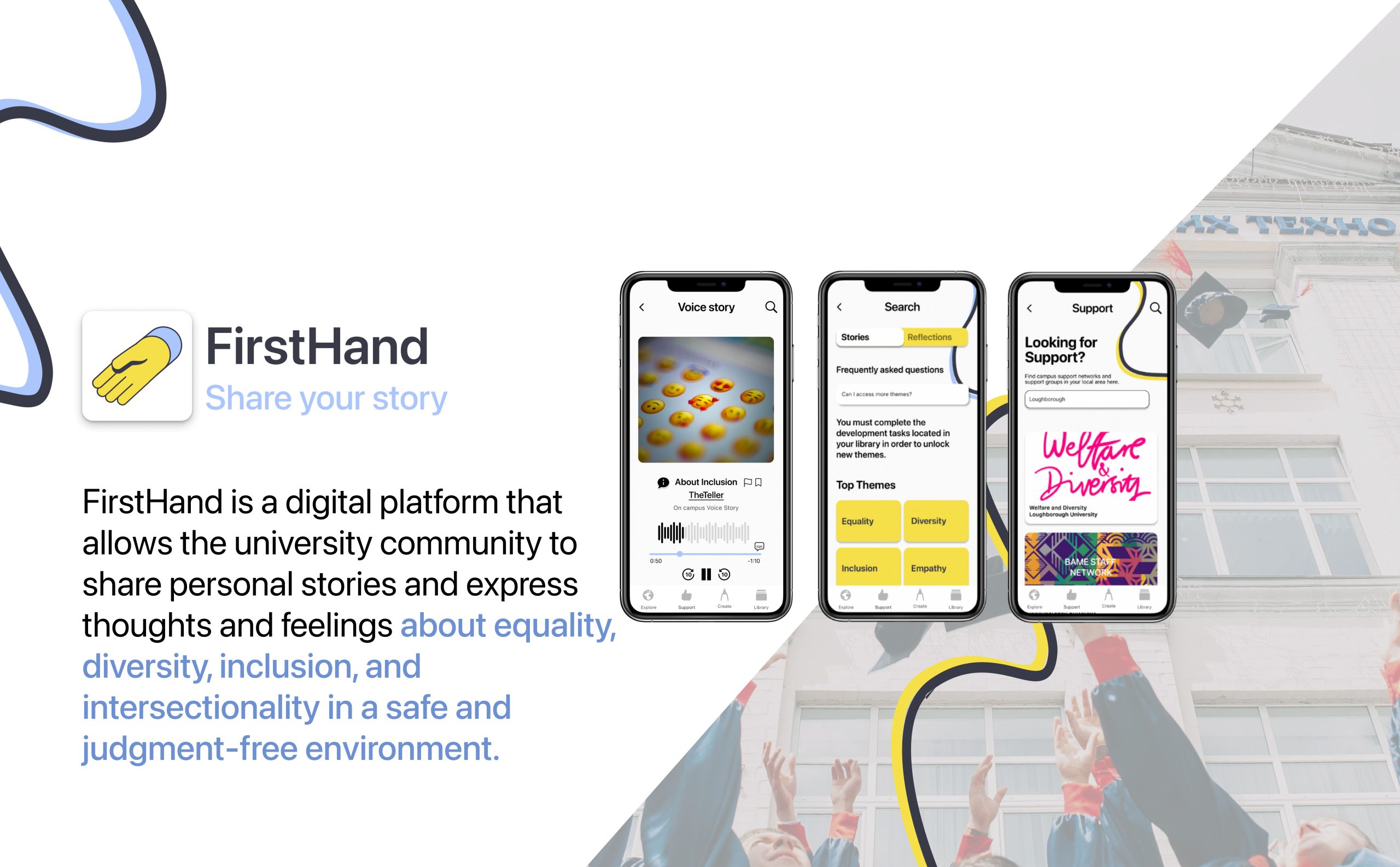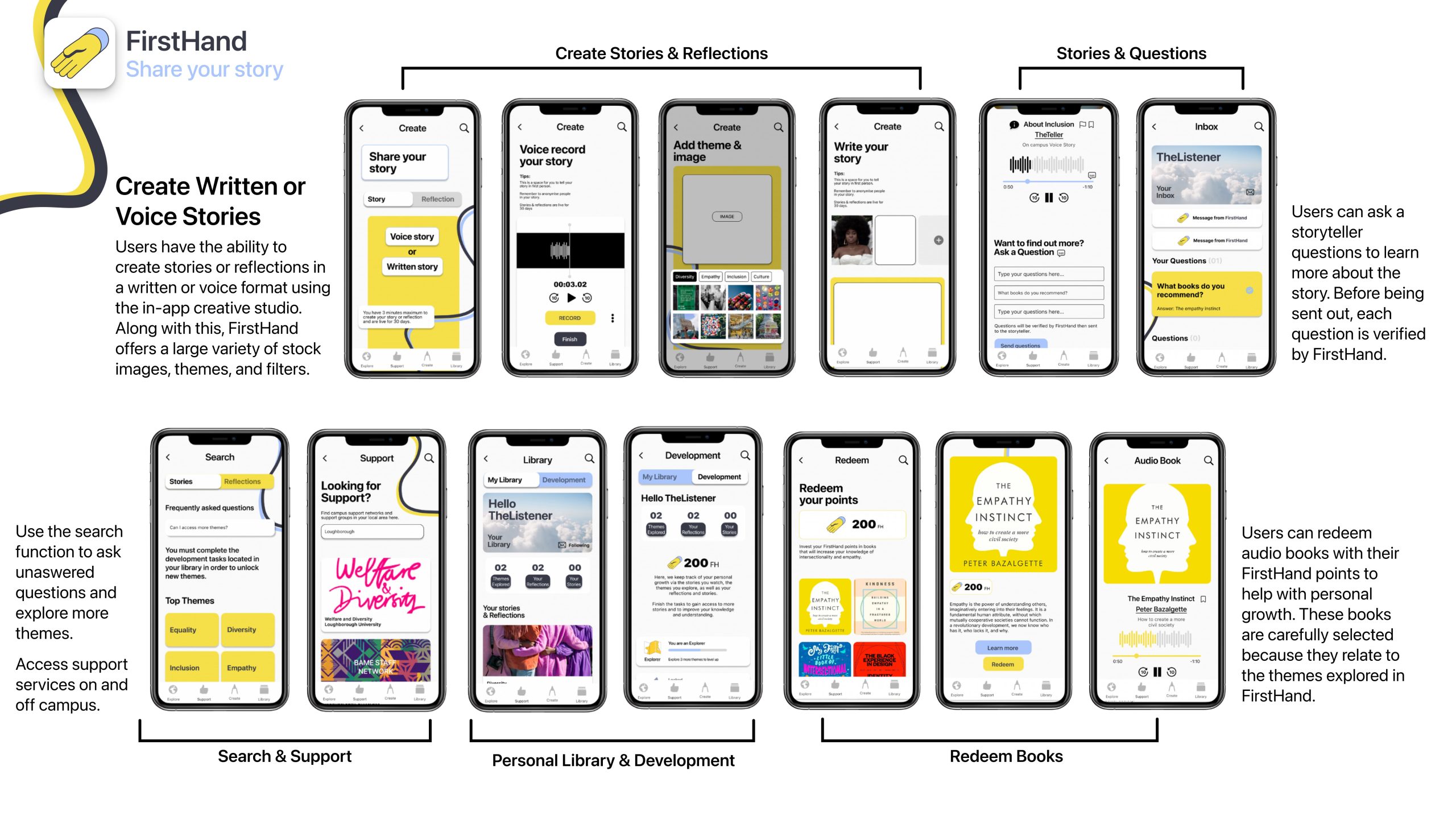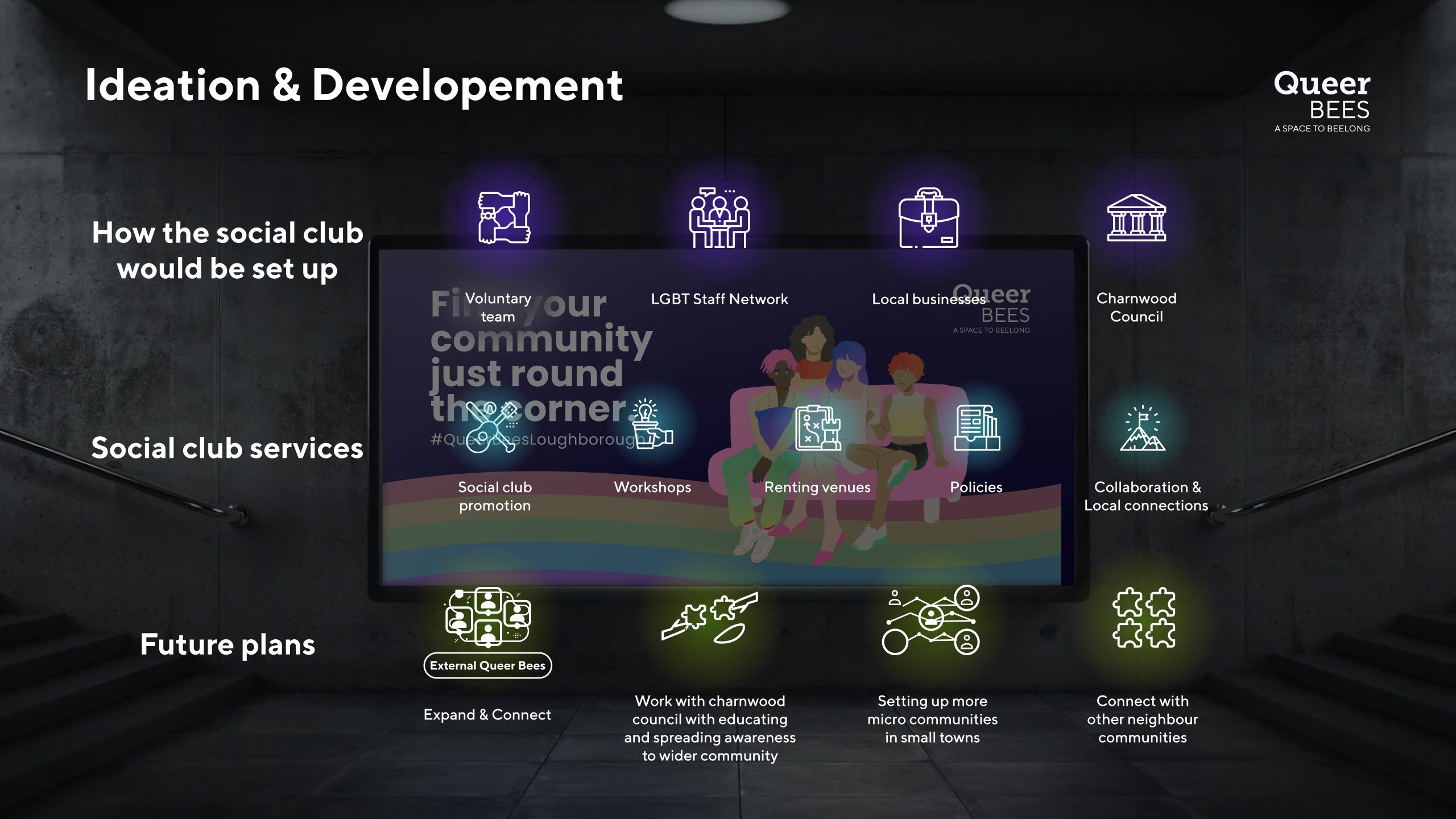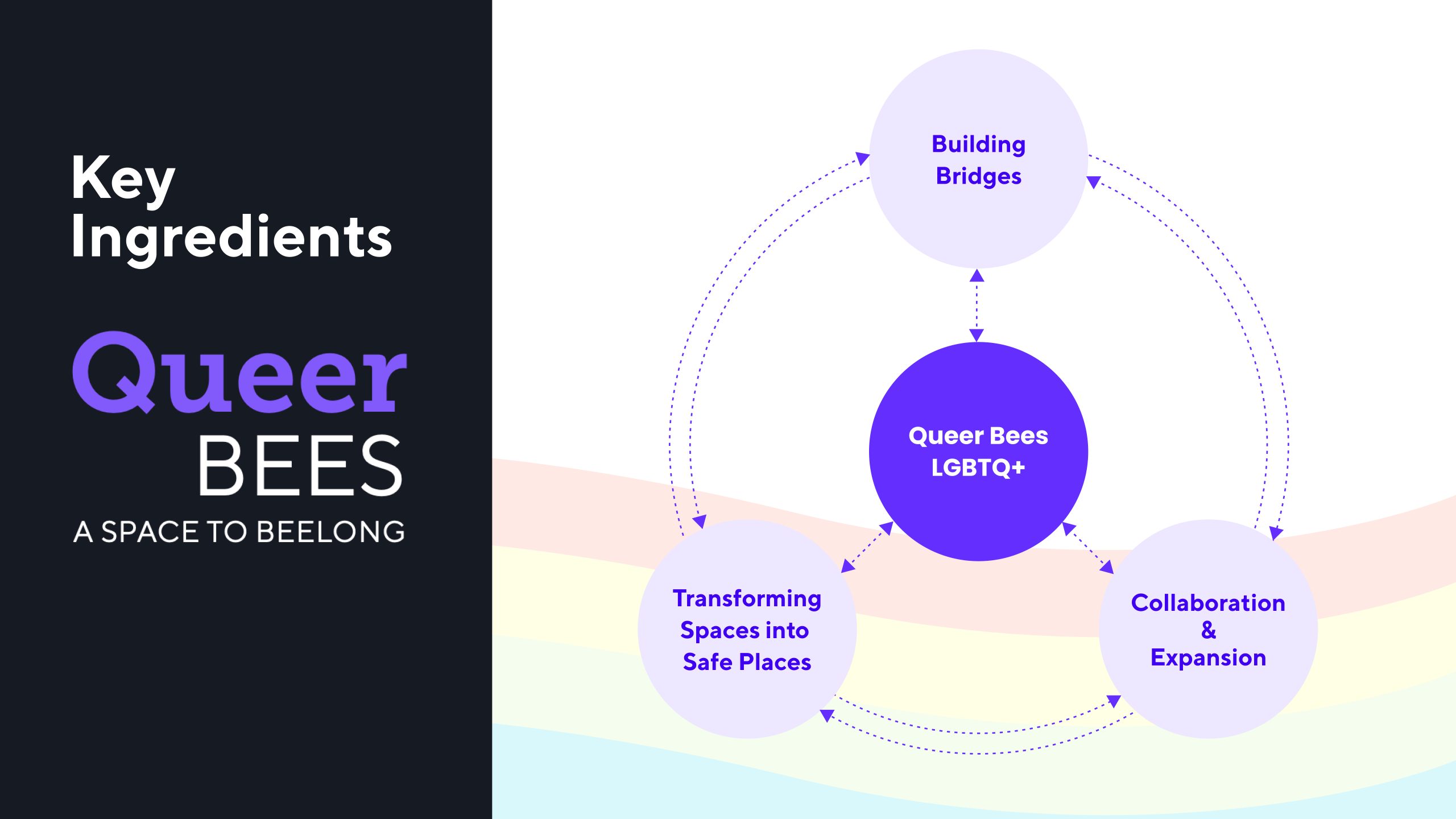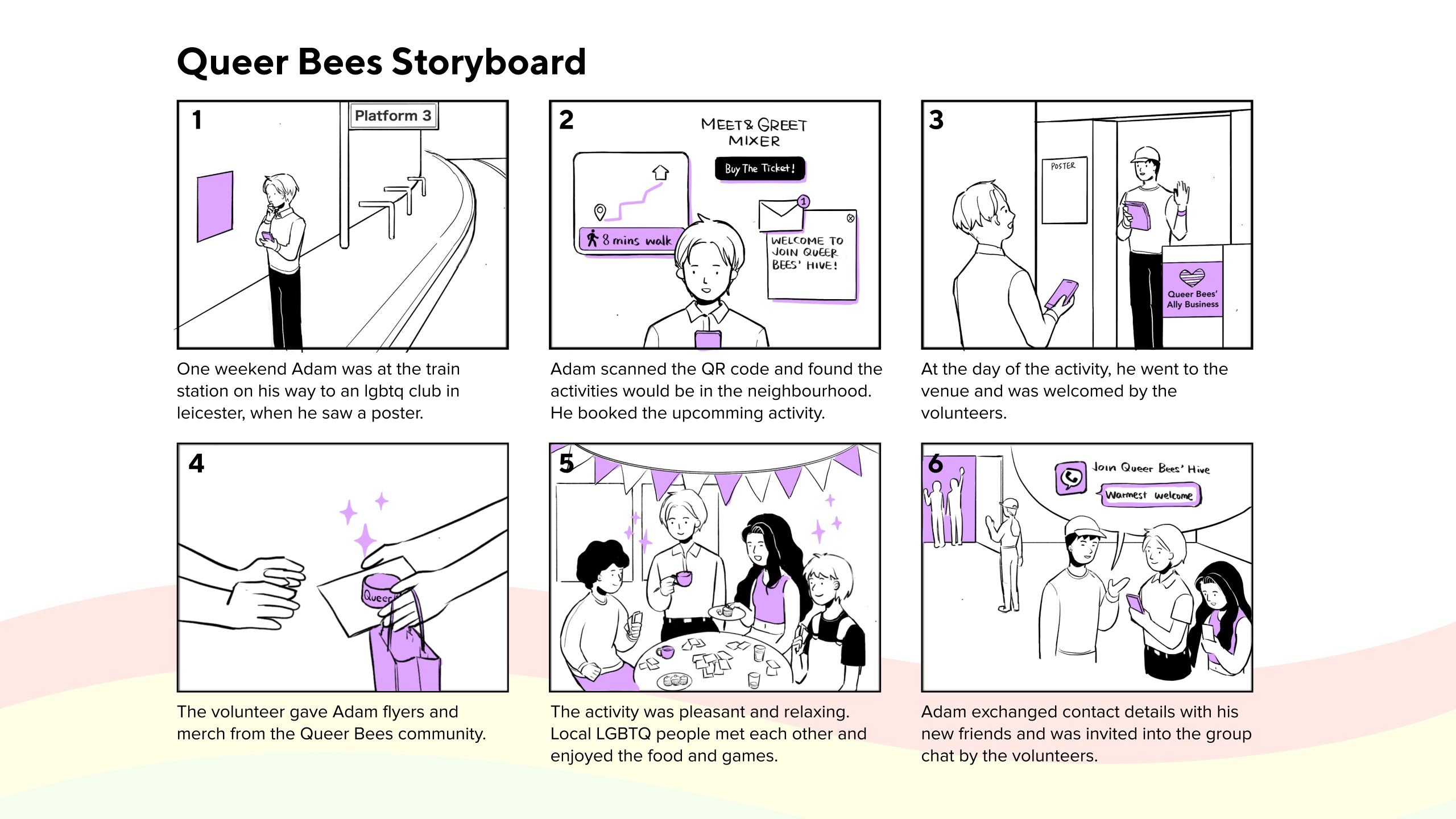As a User Experience designer, I recognise the value of empathy and understanding people. My design approach was to put myself in the shoes of the users and consult with others so that the end product reflected the key user needs.
Major project
FirstHand - Share Your Story
FirstHand - Share Your Story
FirstHand is an independent app and service for students and staff that allows them to create and hear first-person stories as well as views and reflections relating to equality, diversity, and inclusion.
This project was really personal to me because I know what it's like to be rejected and misunderstood at university due to cultural differences.
Universities have made efforts to address discrimination by introducing EDI initiatives (equality, diversity and inclusion). Addressing problems in EDI can be difficult since not everyone is aware of or understands the discrimination that people face, and the duty of educating others typically falls on those who have experienced discrimination. However, because FirstHand promotes self-directed learning, the listener is now in charge.
FirstHand: Onboarding
FirstHand is only available to staff and students at universities, so in order to access the app, users must enter their university email.
Users can choose to be known or remain anonymous while creating an account. Your username will be hidden to other users if you are anonymous. In addition, users are encouraged to view the FirstHand content before getting started so they can get sense of the themes and content.
FirstHand: App Screens
Because this project is centred on EDI and understanding people's experiences with intersectionality, discrimination, and identity, it was critical for me to create a space where individuals would feel comfortable sharing their stories and learning from others. With this in mind, and based on feedback from co-design workshops with university staff and students, I decided against integrating a community aspect and chat functions. This was done to safeguard users and prevent misuse.
Queer Bees Social club
For the service design module I worked in a group and Queer Bees, an LGBTQ+ social club for young adults in Loughborough. As a group we found that Loughborough was lacking in events specifically for LGBTQ individuals that were outside university, accessible for locals and were suitable for non drinkers. With this social club our aims were for people to make meaningful connections and friendships, to break down the barriers between university students and locals and to bring exciting activities and events to Loughborough town.
Queer Bees key Ingredients
Building Bridges:
Creating a bridge between LGBTQ students and residents is the first essential component. We anticipate that by doing this, individuals will be able to make new friends and facilitate social interactions.
Transforming spaces into safe places:
Making spaces into safe spaces is the second crucial element. Safe spaces is a core part of our service since we do not allow any kind of discrimination. As a result, we want to make sure that everyone who joins feels welcome and has a good time in the environment the social club is in.
Collaboration & expansion:
The final component is collaboration and expansion. In order to build mutually beneficial relationships and establish an ally business network, Queer Bees will work with local businesses.
Businesses that are a part of our ally business network will have the Queer Bees rainbow stickers and posters advertising our events. In exchange, they will gain visibility and possibly new customers from our community.
Queer Bees Storyboard
This storyboard shows the customers user journey from discovering Queer Bees to joining a Queer Bees mixer event and forming new friendships.
Digital storytelling: Representation
My digital story titled ‘Representation’ explores my personal experience with the lack of representation in my undergraduate course curriculum. This is a self-reflective story and I used personal images and stock media. Similar to the Racism is a pandemic story, I used a lot of stock imagery to convey my emotions and to show the issues related to the lack of representation. I wanted the audience to see themselves through my story therefore I used pictures that did not include myself.
All of my digital stories can be found on the Making of Black Britain archive on Google arts & culture.
Rianne Gregory
Major project
FirstHand - Share Your Story
Awards
My digital stories were added to the Making of Black Britain archive at Google Arts & Culture, which became live in March 2022. These personal digital stories were created in the storytelling module and explore themes of identity, representation, and culture.
